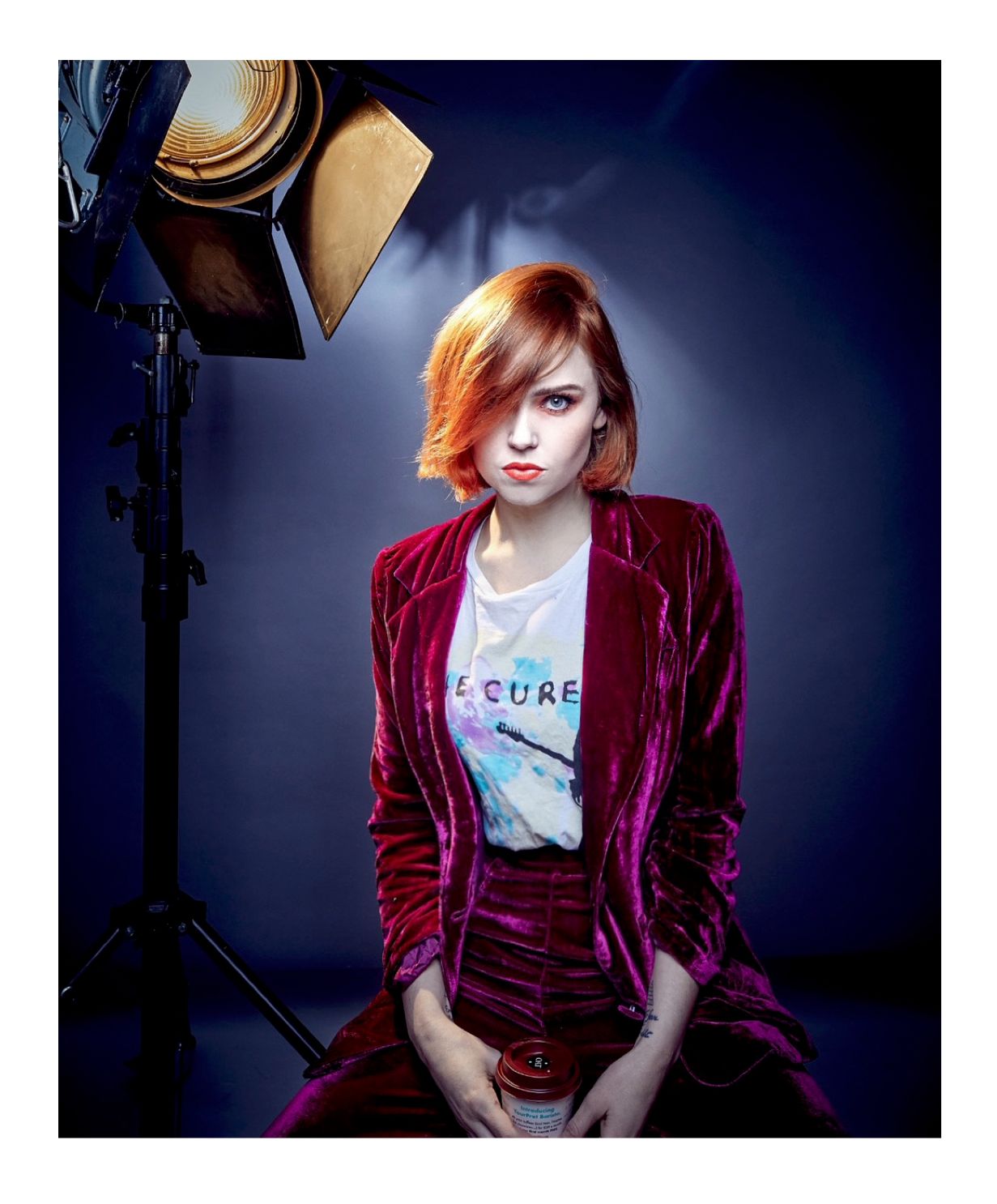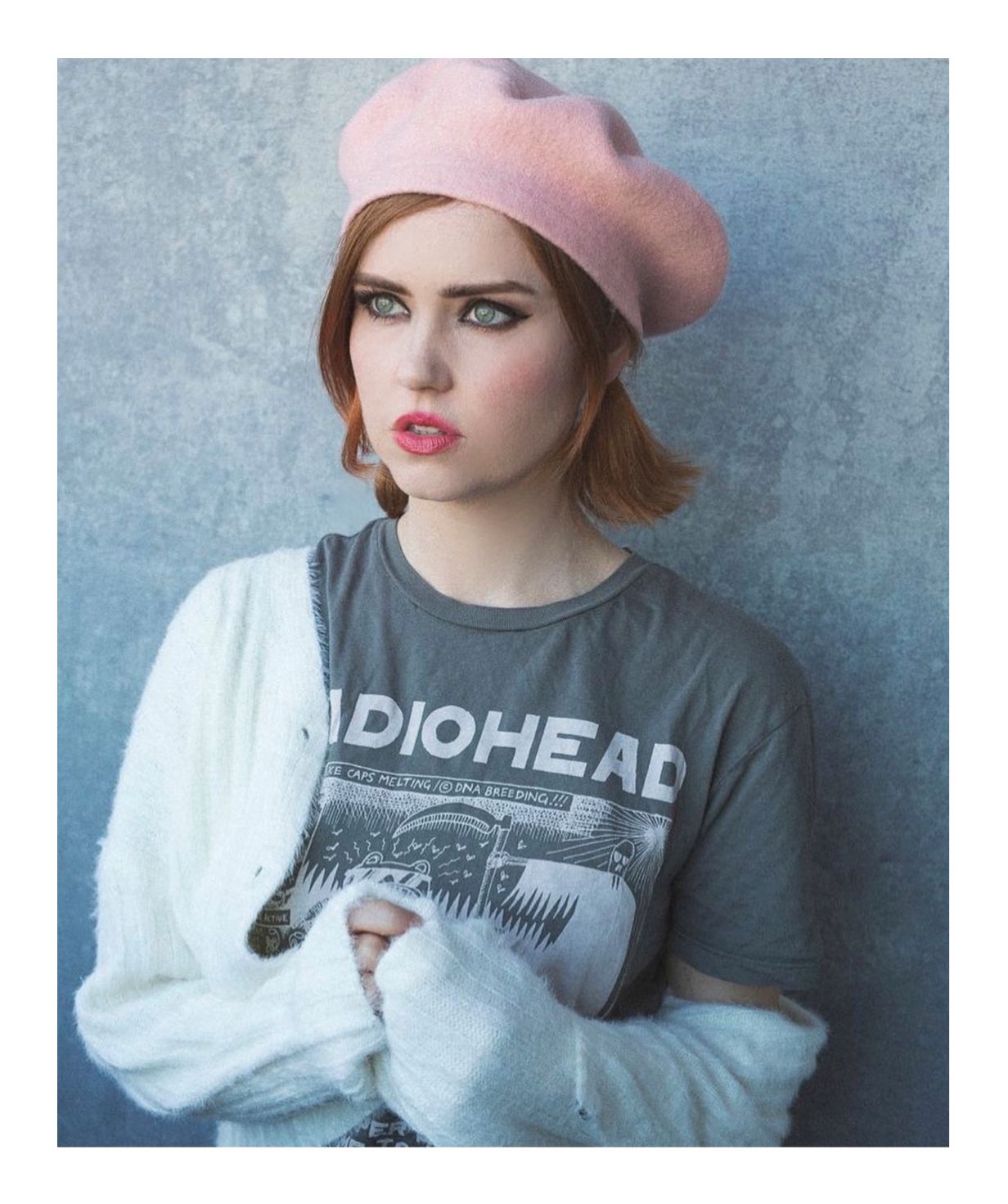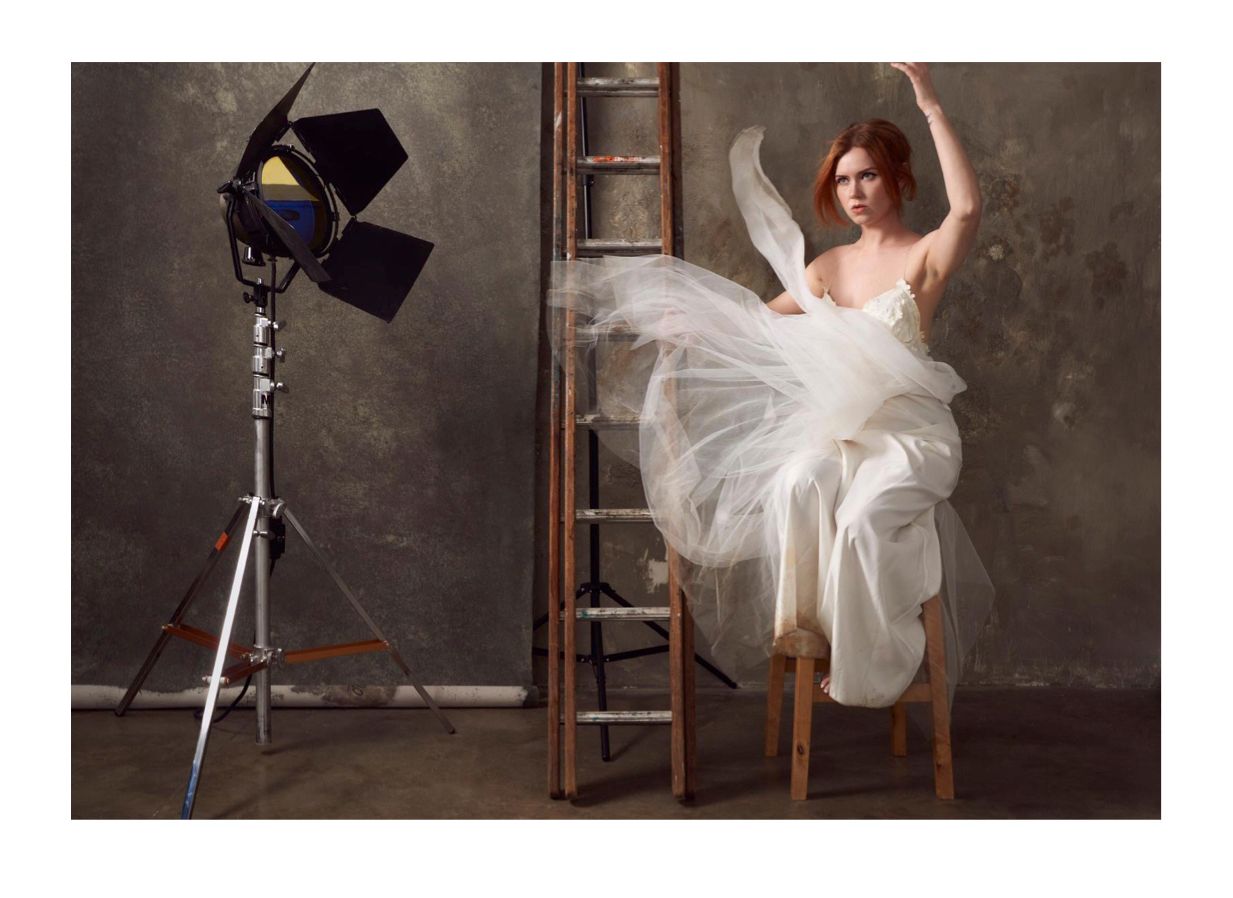
Laura Jean Marsh is a rising actress and director whose personal history is inextricably linked with the North London music scene of the early-noughties, when she worked as a DJ at many of the infamous club-nights that placed Camden and Hoxton at the beating heart of a movement, and fronted an explosive, if short-lived indie-rock outfit. It’s a distinctive period in the cultural history of London, which she mined for her first directorial feature debut Giddy Stratospheres – a bitter-sweet love letter to that particular hot minute in counter-cultural expression, portraying both its highs and lows from the perspective of two close friends living hand-to-mouth, played by Marsh and Jamal Franklin, respectively. Here, she tells Collective Culture why collaboration is key to her creative process, espouses the importance of learning how to fail, and explains how her directorial debut helped her draw a line under the past.
How would you define your personal approach to creativity?
Over the years, I’ve discovered that having an open mind and allowing myself to fail and then grow and learn from it is the best way to progress creatively. Reflecting on past woes and failings has inspired me with my writing, creating and filmmaking –being okay with your faults is healthy. I’m driven by a simple need to make things, and explore new ideas to bring to life, and I’m lucky to have been able to make some magic with some incredible people over the past few years. I think if you keep focused on what feels truthful to you and your project, and you have the right people working with you to bring it to life, then you’re getting it right.
What do you find more fulfilling, acting, writing or directing?
I adore acting. As much as I love being behind the camera and creating from behind the scenes, whenever I do have the chance to act I fall in love with it all over again. There’s a delicious escapism in disappearing into another person. Again, accepting that with every acting job, there will be challenges, is important too – striving for perfection in acting makes no sense because you are playing a real being, and human beings are flawed and complicated. In terms of my process, I find that doing as much preparation as possible is integral in making your performance as truthful as possible.

How did your experience as an actress help you when it came to directing Giddy Stratospheres?
I think with Giddy Stratospheres it really helped because I knew how to communicate with our cast of actors one-on-one and as a group in a truthful and inclusive way. My producer Beth Slater and my first AD Josh Harper are actors also, so I think our team knew how to bring everything to life creatively and harmoniously, and how to make sure everyone felt secure and safe enough to bring their characters to life in a fun and nurturing space. It’s a cliché, but if there is a negative vibe on-set, it has a negative effect on the work. I’m lucky to have a family of friends and collaborators who inspire me. Jamal Franklin, who plays the joint lead alongside me in that film, has become like family to me. He’s an amazing actor but also an incredible writer and creator. His three-part short film series ‘Prism of Race’ is something everyone needs to check out.
How much of the film is autobiographical?
A lot of it is autobiographical. It was tough at times on set, because it was so close to my heart. But as I said before, I had an incredible team around me who were very supportive and committed to the cause. I’ve been through so much since that era, career wise and personally. And many years have passed. But it was a very defining time, and since making the film and it being released, I feel like I can put a line under it now. London was very special at that time, there was incredible music everywhere and it felt like we were in the centre of the universe, in our niche little corner of this exciting scene. Being surrounded by so much excitement and creativity was addictive, sometimes too addictive, and it was both a toxic and magical time. I’m proud to have brought it to life with my film.

What has been the most satisfying moment in creative life so far?
I don’t know if I’m good at feeling satisfied as I’m always concentrating on the next thing. I love wearing lots of hats, and it can be overwhelming when I have a few things on at once. But when I’m really stuck into a project, there is no feeling like it. I am fulfilled by bringing ideas to life with a team of people. It’s the best feeling in the world. It can be the death of me at times, as I’m not very good at knowing when to stop and rest, but whenever I do its extremely beneficial because that is when new ideas come to me. I will say that receiving lovely messages from people that have seen Giddy Stratospheres and were extremely moved by it is extremely satisfying and touching. I don’t think I had prepared myself for that.
Credits (Top to Bottom): Portrait by Robin Gautier; Portrait by Michael Shelford; Portrait by Roj Whitelock.